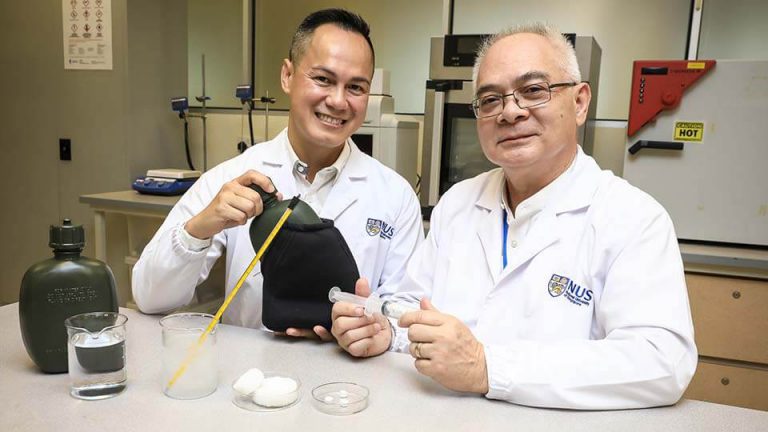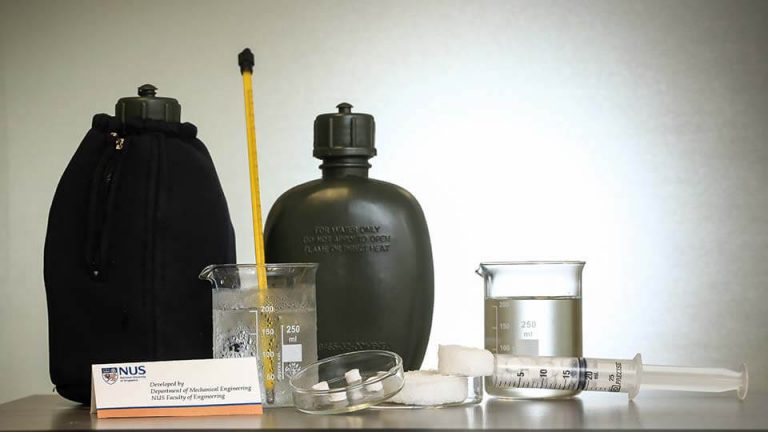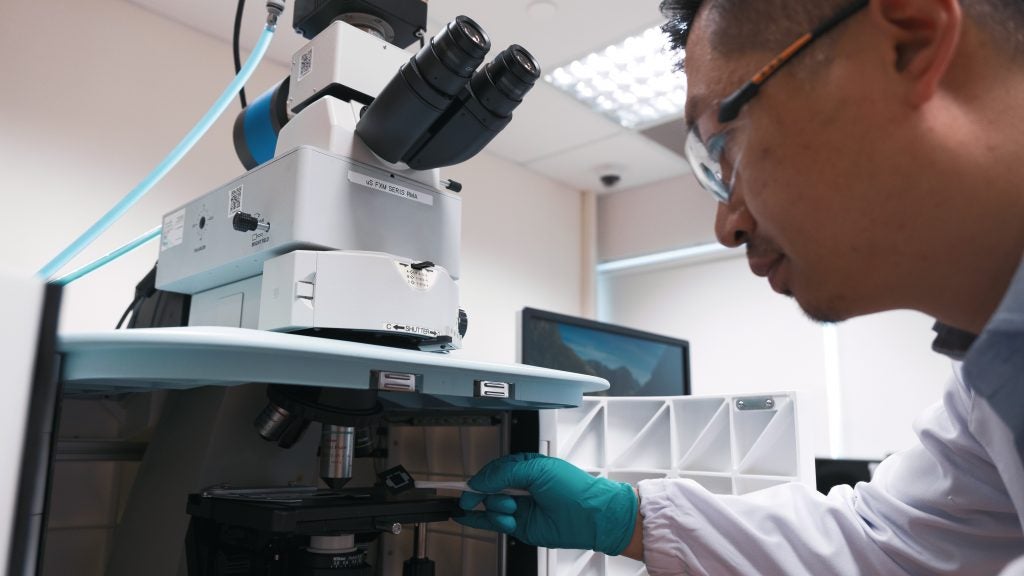
A team of researchers from NUS Mechanical Engineering have found new use for old clothes. Led by Assoc Prof Hai Minh Duong and Prof Nhan Phan-Thien, the research team has successfully turned disused cotton fabrics into highly compressible and ultralight weight cotton aerogels that are multifunctional. The cotton aerogels can be used to keep military water bottles cold, as well as control of rapid bleeding caused by gunshot wounds or other deeply penetrating wounds which can be life-threatening.
Said Assoc Prof Duong, "This new eco-friendly cotton aerogel is a major improvement from the aerogel that our team had previously developed using paper waste. It is highly compressible, hence storage and transportation costs could be greatly reduced. Furthermore, these cotton aerogels can be fabricated within eight hours - this is nine times faster than our earlier invention and about 20 times faster than current commercial fabrication processes. They are also stronger, making them more suitable for mass production. While we have demonstrated novel application of the cotton aerogels for effective haemorrhage control and heat insulation, we will continue to explore new functions for this advanced material."
The team took more than two years to develop and patent their method. There are two major uses for the innovative material. At present, haemorrhage control devices comprise a syringe filled with small capsules of cellulose-based sponge. This is inserted into the wound to release the capsule, which expands and applies pressure on the wound to stop the blood flow. However, the expansion and absorption rates of cellulose-based sponges are still relatively slow. The cotton aerogel pellets developed by the NUS Engineering team are highly compressible, each pallet can expand to 16 times its size in 4.5 seconds, and absorbs more blood three times faster than existing pallets.
The researchers also worked with DSO National Laboratories to develop a thermal jacket for the military canteens that soldiers use to carry fluids. The jacket, which weighs about 200 grams, comprises cotton aerogel that is sandwiched between neoprene and polyester fabrics. This cotton aerogel-insulated military canteen offers better heat insulation performance compared to commercial insulated water bottles such as FLOE bottles, and is highly comparable to that of vacuum flasks. However, FLOE bottles and vacuum flasks are much heavier and more costly.
Meanwhile, the NUS Engineering researchers have filed a patent for the novel cotton aerogels, and are exploring opportunities to work with companies to commercialise the technology.






